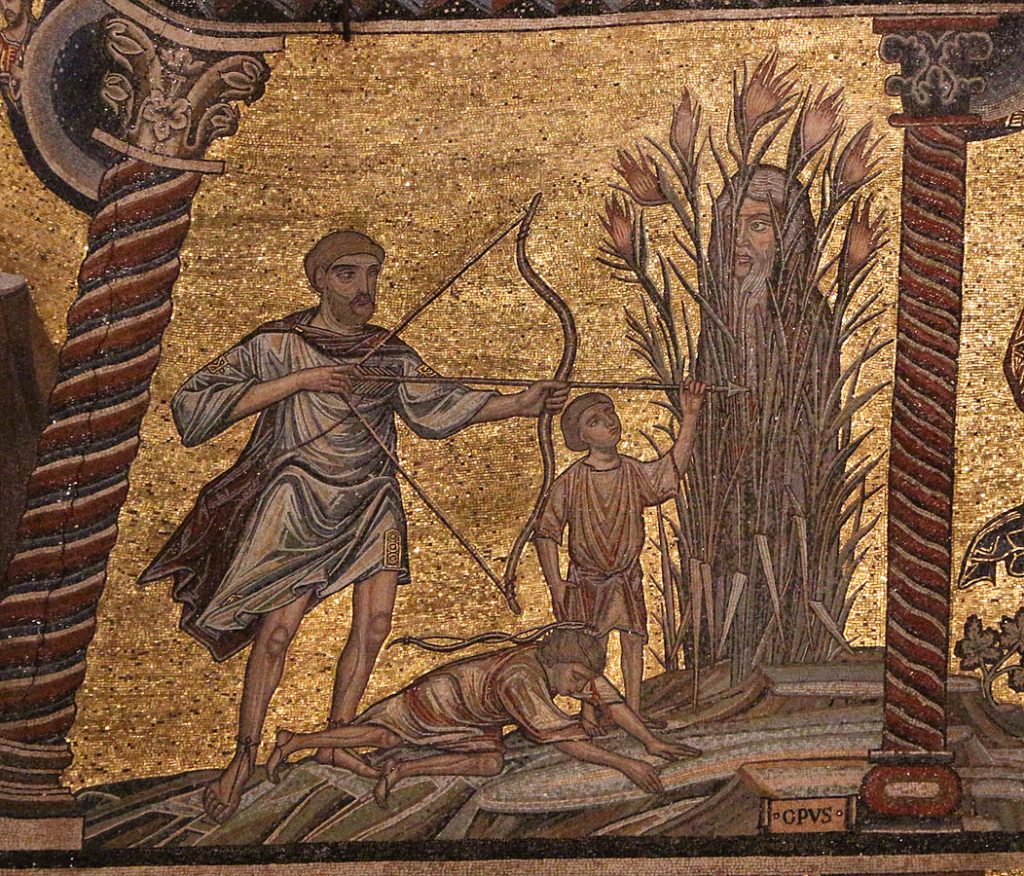My friend and ordained rabbi Gershon Blackmore posted this musing on the Torah to Facebook. It’s one of those stories that has human power, human value, and tells us a little something about the people we must deal with today. And at the end, I think, is exactly what we need to hear as power passes from capable, measured hands into the hands of a thin-skinned, hot-headed, sticky-fingered ego tripper.
There are always men like him. But there are always people like us. And that gives me hope.
Way back in the early days of Scriptural “history,” before Abraham or even Noah, there was a fellow named Lamech. We know nothing of him except the following literary tidbit:
Lamech said to his wives
Adah and Zillah
Hear my voice
You wives of Lamech
Listen to my speech
For I have slain a man for wounding me
And a boy for hurting me.
If Cain shall be avenged sevenfold
Truly Lamech seventy and sevenfold.
And that is what we know of Lamech. A man who sang, in literary Hebrew, of his exceptional powers of revenge. His song bursts out of the ancient cloud of time and event, and tells us of the power of being known as vengeful, visiting a hurt from a boy on the poor lad seventy seven fold. The Hebrew doesn’t say “young man” (na’ar). It says “Yeled,” or “child.”
Lamech would destroy a child for “hurting” him. This was an adult who could be hurt by a child. One can imagine the world within his mind–in which one takes savage retribution on children. He was the archetypal abuser of all.
I once taught a class on revenge at my synagogue. We used as a text the memoir of a young woman whose father was stabbed by a Palestinian youth in Jerusalem. He survived. She went on to explore her relationship to the young man who had perpetrated the crime, who at the time of the writing was still in jail. In passing, she expressed the real, evolutionary power of revenge: “Nobody will think they can do that to my family and get away with it.” Revenge in human history has had the adaptive function of warning off human predators.
The young woman could not sustain this stance toward the world, however. She befriended the young man, and met his family. She discovered life beyond revenge. She discovered that, to live, one has to live life beyond revenge.
We are poised on the edge of a dark time, when a man who has devoted his life to getting outsized revenge on anyone who might offend him now will have the keys to a nuclear arsenal. I don’t have to fill in the prose from here. You all know it. The threat.
One of the things that makes the Bible the Bible, if you are not a fan of direct divine revelation, is that it is a repository of ancient human archetypes. Lamech came from the kind of humanity that God finally, in the Biblical narrative, abandoned in disgust. The ancient vaults of Tehom, the depths (the ancient goddess of chaos, Tiamat) were opened, and Lamech and his kind were swept away in the flood.
But it was not wholly so. Lamech and his kind were not swept away in the flood. That ancient, coarse guffaw of revenge still echoes down from those old days, when folks could be assholes and still live hundreds of years, when their cries of vengeful barbarity reached the very heavens. It takes scandalously little to awaken Lamech’s children today. And when they are awake, the message of eternal battle and score-settling and vengeful, punishing rage drowns out everything else at times.
Almost everything else. There is always us. We must not let ourselves be drowned out.
Shalom everyone.



That was a lot scarier than I expected.